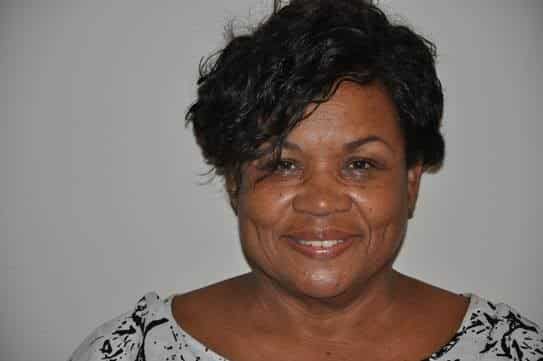For the last several months, everything in Norma Clarke’s life had been pointing her to a lifestyle program on the campus of Weimar Institute. “Everything has divine appointment,” stated Clarke. “God wanted me to come to NEWSTART.”
She had been watching television at her home in Ocho Rios, Jamaica, when Neil Nedley MD popped on the screen. “It was either 3ABN or the HOPE Channel. He was talking about health and the NEWSTART program.”
This past November, she was part of a trip to Israel with Elder Jim Gilley. “He had a doctor along on the trip who was talking about health and NEWSTART.”
Just recently, she was watching the Jamaican television news when they were doing a story on a lady who had lost 35 pounds. They showed “before” pictures. The lady said she’d been reading a book called Ministry of Healing which Clarke interpreted to mean this lady was Adventist and her story was a NEWSTART success story.
“Enough is enough!” Clarke went online and researched NEWSTART, found a starting date, the price. “And here I am,” commented Clarke while being interviewed during her 18-day NEWSTART stay on the campus of Weimar Institute in Northern California.
Seven years ago, she lost her husband Horace. “My life went to pot. Didn’t eat right. Didn’t exercise. Just wanted to lay in bed and cover my head.” It was during that deep depression that she developed diabetes.
Her goal was to reverse her diabetes, get her cholesterol down, and lower her blood pressure. “I wanted to cleanse myself. To reorient my taste buds, and improve my spiritual life.”
As a Seventh-day Adventist, Clarke had never read Ministry of Healing, but after health lectures and her own study, she has a better understanding of diabetes. “It’s not sugar, it’s the fat.”
Jamaicans love to cook. It’s part of the rich heritage, according to Clarke. That’s why she has a full-time housekeeper/cook. “My problem, she loves to cook with oil.”
Clarke said that while at NEWSTART, “I’ve already told her to clear out the cupboards and box up all the food and spices.”

One of the favorite Jamaican dishes is rice and peas. “It’s a bedrock for us. We have it almost every day.” Clarke explained they use gungo peas, similar to the American black-eyed peas without the black. She’s already consulted the NEWSTART dietitian about how to convert this dish into a healthy version. “She told me to switch it to brown rice and to only use a little coconut milk to flavor it instead of a whole can like I’d normally use.”
After leaving NEWSTART, Clarke fully expects to continue with her cultural foods with modifications and portion control as they use lots of native fruits and vegetables. She references a tuber called yams, ackee, green bananas, and breadfruit.
Educated at Cal State in Los Angeles with a business degree, Clarke applies her business savvy to her profession as owner of Mystic Mountain Rainforest, a hybrid nature theme park near the Dunn’s River Falls that are constantly rated by TripAdvisor as one of the top attractions in Jamaica. Mystic Mountain’s signature bobsled ride was inspired by the famous Jamaica bobsled Olympic team.
“I enjoy riding it.”
Clarke explains that the ride is open year around but when it’s drizzling, the track is faster. It makes concentric circles, gaining speed with each circle as it takes the seven minute ride down the hill.
In addition to the bob sled ride, Mystic Mountain has two zip lines and lots of other family fun. Speaking of family, Clarke is a family person. With no children of her own and the death of her husband, she said she’s adopted a lot of nieces and nephews…to love and experience life with.
Her late husband was a member of parliament in Jamaica and she established a foundation in his memory that sends children from his old parish to college. “We currently have 12 students in college now, and the first two are graduating this year.”
She shares that her husband’s guiding principle was to “seek a better life for all.”
Clarke believes that her time learning the NEWSTART principles was a gift from God and enables her to provide a better life for all. It also gives her the strength, energy, stamina, and a spiritual focus to claim the promise in her favorite Bible text, Micah 6:8, “He has to you, O man, what is good; and what does the Lord require of you but to do justice, and to love kindness, and to walk humbly with your God?”
*After arriving at the campus of Weimar Institute, Clarke discovered the doctor who was along on the trip to Israel was Randy Bivens, MD, the chief operating officer at Weimar.
